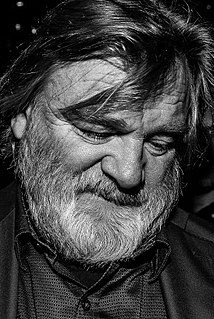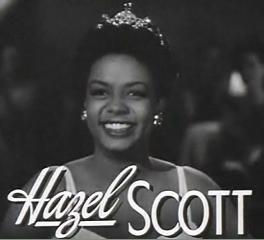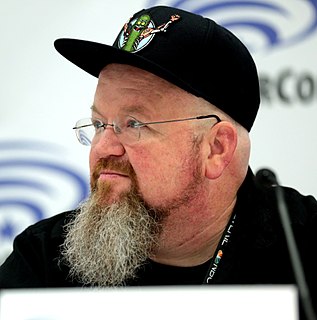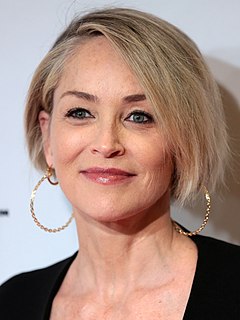A Quote by William Peter Blatty
Yet I think the demon's target is not the possessed; it is us . . . the observers . . . every person in this house. And I think---I think the point is to make us despair; to reject our own humanity, Damien: to see ourselves as ultimately bestial; as ultimately vile and putrescent; without dignity; ugly; unworthy.
Related Quotes
I think ultimately, people are selfish in that department [blues], in a good way - the reason we're attracted to art is because it somehow reflects us. And I think, ultimately, we're a tribal people by nature. We're not individualistic. We almost like to hear that there's other people in a worse state than us. Sometimes even more than we like hearing there are people in better states than us.
We forgive, if we are wise, not for the other person, but for ourselves. We forgive, not to erase a wrong, but to relieve the residue of the wrong that is alive within us. We forgive because it is less painful than holding on to resentment. We forgive because without it we condemn ourselves to repeating endlessly the very trauma or situation that hurt us so. We forgive because ultimately it is the smartest action to take on our own behalf. We forgive because it restores to us a sense of inner balance.
An important purpose for mortality is to help us learn to recognize and to choose the positive even though the negative more fully surrounds us. We make this choice consciously or unconsciously in every moment of the day, and these millions of tiny choices create the foundation of our identity. We are what we think. We are what we say, what we do, what we fill our lives with. Ultimately, every being creates himself by these countless, crucial choices.
I suspect that many of us, if given the chance to make one person in our lives love us more, would have no trouble in choosing where to point a finger. We are all needy, all vulnerable, all terrified that perhaps that person has an excellent reason to withhold affection. We shape our purposes to make ourselves worthy and often do not see until much later how it was love-or perhaps the lack of it-that both picked us up and dropped us off at crossroads.
I think it gave us the freedom to be more creative and do things the way we wanted to do them, so if a label liked it that was cool and if they didn't like it fine. Ultimately it was up to us to sink or swim and there was nobody telling us what direction to go in. I think that made the entire record more diverse.
America is not going to side with the people that think our best days are behind us. It's not going to side with the people that think we pit people against each other, even if they believe at their core - which I think some of these people do - that, you know, ultimately Trump would make things better.
I think that, in our culture, we find older people to be almost invisible, and it's such a shame. The one thing, the one condition that we all suffer from, and that we all benefit from, is ageing. It starts at zero and we're all going in the same direction, and I always try to see the young person underneath the older person and that's all of us. We all feel the same way inside, and I think that there are so many ways for us to age well and to help our senior population get to the golden years with more dignity more independent and more enjoyment.






































